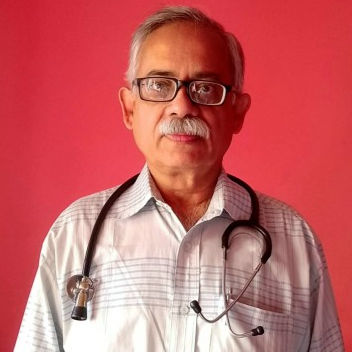Guide to Caring for Elderly Loved Ones at Home: Practical Tips and Strategies
Practical tips and strategies for caring for elderly loved ones at home, covering safety, daily routines, health, mental well-being, and caregiver support.


Introduction
Caring for an elderly parent or relative is one of the most profound and rewarding experiences, but it can also be overwhelming. As our loved ones age, their needs evolve, requiring a blend of compassion, practical knowledge, and patience. Whether you're a new caregiver or looking to enhance your support, this guide is designed to walk you through the essential aspects of caring for the elderly. We will explore how to create a safe home environment, manage daily care routines, support their mental and physical health, and, crucially, how to look after your own well-being throughout this journey. The goal is not just to add years to life, but to add life to their years, ensuring they feel valued, safe, and connected. Let's dive into the key principles that can transform this responsibility into a meaningful partnership.
Understanding the Aging Process: More Than Just Physical Changes
Aging is a natural journey that affects every aspect of a person's being. To provide effective care, it's vital to understand the common changes your loved one may be experiencing. This goes beyond gray hair and wrinkles; it encompasses shifts in physical health, cognitive function, and emotional resilience. Empathy begins with understanding that these changes are often beyond their control and require adaptive support strategies.
Common Physical Health Challenges
With age, the body undergoes several transformations. Muscle mass and bone density can decrease, leading to a higher risk of fractures from falls. Vision and hearing may diminish, making communication and navigation more challenging. Chronic conditions like arthritis, diabetes, hypertension, and heart disease become more prevalent. It's important to monitor these conditions closely. If symptoms like persistent pain, dizziness, or shortness of breath arise, consulting a doctor online with Apollo24|7 can provide quick, professional guidance without the stress of travel.
Cognitive and Emotional Shifts
Cognitive changes can range from occasional forgetfulness to more significant conditions like dementia or Alzheimer's disease. Emotionally, seniors may experience feelings of loss—loss of independence, friends, or their former lifestyle. This can sometimes manifest as irritability, anxiety, or depression. Recognising that these behaviours are often symptoms of underlying issues, not personal attacks, is key to maintaining a compassionate and supportive relationship.
Consult a Geriatrician for the best advice
Creating a Safe and Comfortable Home Environment
For most seniors, "aging in place"—remaining in their own home—is the preferred option. Making their living space safe is the first and most critical step in caring for the elderly. A few strategic modifications can significantly reduce risks and promote independence.
Fall Prevention: The #1 Priority
Falls are a leading cause of injury among older adults. Prevention is paramount. Start by decluttering walkways, removing loose rugs, and ensuring all rooms are well-lit, especially stairways and hallways. Install grab bars in the bathroom near the toilet and shower and use non-slip mats. Encourage your loved one to wear sturdy, well-fitting shoes indoors instead of slippers.
Essential Home Modifications for Elderly Safety
Beyond quick fixes, consider more permanent modifications. A ramp at the entrance can replace steps for those using walkers or wheelchairs. A shower chair and a handheld showerhead can make bathing safer and less strenuous. Lever-style door handles are easier to use than round knobs for arthritic hands. These changes empower your loved one to navigate their home with confidence and significantly reduce the risk of accidents.
Daily Living and Personal Care Support
Supporting activities of daily living (ADLs) is a core part of caregiving. The approach should always be to encourage independence where possible and assist with dignity when needed.
Assisting with Activities of Daily Living (ADLs)
ADLs include basic self-care tasks: bathing, dressing, eating, toileting, and transferring (e.g., moving from a bed to a chair). The level of assistance required will vary. The key is patience. Break tasks into simple steps and offer choices to maintain their sense of control. For example, instead of directing, ask, "Would you like to wear the blue shirt or the red one today?"
Maintaining Personal Hygiene with Dignity
Personal care can be a sensitive area. Always prioritise the individual's dignity and privacy. Explain what you are going to do before you do it. Use a calm, respectful tone. If bathing is a challenge, consider sponge baths on some days. Keeping up with oral hygiene, skincare, and grooming is not only about health but also about boosting self-esteem.
Nutrition and Hydration: Building Blocks for Health
A balanced diet and adequate hydration are crucial for maintaining energy, managing chronic conditions, and supporting the immune system. However, appetite and dietary needs change with age.
Special Dietary Needs for Seniors
Seniors often need fewer calories but more of certain nutrients, like calcium, vitamin D, and vitamin B12. Focus on nutrient-dense foods: fruits, vegetables, lean proteins, and whole grains. If chewing is difficult, opt for softer foods like soups, stews, smoothies, and cooked vegetables. Be mindful of sodium intake for blood pressure and sugar for diabetes management. For personalised advice, a nutritionist can help create a healthy diet plan for seniors that addresses specific health concerns.
Tips for Managing Appetite and Hydration
A decreased sense of taste and smell can reduce appetite. Try using herbs and spices instead of salt to make food more flavorful. Offer smaller, more frequent meals instead of three large ones. Dehydration is a common and serious issue. Keep water bottles accessible throughout the house and offer fluids regularly, even if they don't feel thirsty. Soups, fruits, and vegetables also contribute to hydration.
Managing Medications Effectively and Safely
Many seniors manage multiple medications, a situation known as polypharmacy, which increases the risk of errors. An organised system is non-negotiable. Use a weekly pill organiser with compartments for each day and time. Maintain an up-to-date list of all medications, including dosages and prescribing doctors. This list should be reviewed during every medical appointment. If managing complex regimens becomes challenging, consider using a medication management service or discussing a simplified plan with their doctor on Apollo24|7. Furthermore, Apollo24|7 offers convenient home collection for tests like HbA1c or kidney function tests to monitor the impact of long-term medications.
Promoting Mental Well-being and Social Connection
Health is holistic. Mental and emotional well-being is just as important as physical health. Isolation and loneliness can have severe consequences, including depression and cognitive decline.
Combating Loneliness and Social Isolation
Encourage regular social interaction. This could be family visits, phone calls with friends, or participation in community senior centers. Technology can be a powerful ally—help them learn to use video calls to connect with grandchildren or join online interest groups. Even having a pet or regular visits from a volunteer can provide companionship.
Engaging Activities for Cognitive Stimulation
Keep the mind active to help maintain cognitive function. Puzzles, reading, listening to music, playing card games, or pursuing hobbies like gardening or knitting are excellent. Reminiscence therapy—looking through old photo albums and sharing stories—can be a joyful and mentally stimulating activity that strengthens your bond.
Navigating Healthcare and Professional Support
You don't have to do it all alone. Leveraging professional resources is a sign of strength and good planning.
The Importance of Regular Health Check-ups
Preventive care is essential. Ensure your loved one attends regular appointments with their primary care physician, dentist, and eye doctor. Accompany them to take notes and ask questions. This proactive approach helps in the early detection and management of potential health issues.
When to Seek Professional In-Home Care
There may come a time when care needs exceed what you can provide. This is not a failure. Professional in-home caregivers can assist with personal care, housekeeping, and companionship, providing you with much-needed respite. Recognising when you need help is crucial for sustaining long-term care.
The Caregiver's Well-being: Avoiding Burnout
Caregiver burnout is a state of physical, emotional, and mental exhaustion. It's common, but it's not inevitable. You cannot pour from an empty cup. Prioritise your own health by taking breaks, eating well, and getting enough sleep. Seek support from family, friends, or caregiver support groups where you can share experiences and advice. Don’t hesitate to ask for help. Taking time for yourself is not selfish; it’s necessary to be an effective and compassionate caregiver.
Conclusion: A Journey of Compassion and Connection
Caring for an elderly loved one is a deeply personal journey that blends challenge with profound reward. It's about more than just managing medications or preventing falls; it's about honoring a lifetime of experiences and providing comfort, respect, and love in their later years. By creating a safe environment, supporting their physical and emotional needs, and remembering to care for yourself, you can make this chapter a positive and meaningful one for both of you. Remember, seeking support is a strength. Whether it's from family, community resources, or healthcare professionals, you have a network to rely on. If you have any concerns about your loved one's health, don't hesitate to take the next step. Consult a doctor online with Apollo24|7 for convenient and expert advice tailored to your unique situation.
Consult a Geriatrician for the best advice
Consult a Geriatrician for the best advice

Dr. Suraja Nutulapati
General Physician/ Internal Medicine Specialist
10 Years • MBBS, MD (Internal Medicine)
Hyderabad
Apollo 24|7 Clinic, Hyderabad
(975+ Patients)

Dr Abilash Jain
General Physician/ Internal Medicine Specialist
12 Years • MBBS,DNB(FM),MNAMS,FIAMS,CCGMG(GERIATRICS),DGM (GERIATRICS),PGCD(DIABETES,BOSTON UNIVERSITY),FID(DIABETICS UK)CCEPC(PALLIATIVE CARE),CCCC(CRITICAL CARE)
Visakhapatnam
Apollo Clinic Vizag, Visakhapatnam

Dr. E Prabhakar Sastry
General Physician/ Internal Medicine Specialist
40 Years • MD(Internal Medicine)
Manikonda Jagir
Apollo Clinic, Manikonda, Manikonda Jagir
(150+ Patients)

Dr. Dershana P Rajaram
Obstetrician and Gynaecologist
35 Years • MBBS, DGO
Bangalore
Apollo Clinic Bellandur, Bangalore

Dr. Pinaki Mukhopadhyay
General Physician/ Internal Medicine Specialist
32 Years • MBBS
Kolkata
MCR SUPER SPECIALITY POLY CLINIC & PATHOLOGY, Kolkata
(25+ Patients)
Consult a Geriatrician for the best advice

Dr. Suraja Nutulapati
General Physician/ Internal Medicine Specialist
10 Years • MBBS, MD (Internal Medicine)
Hyderabad
Apollo 24|7 Clinic, Hyderabad
(975+ Patients)

Dr Abilash Jain
General Physician/ Internal Medicine Specialist
12 Years • MBBS,DNB(FM),MNAMS,FIAMS,CCGMG(GERIATRICS),DGM (GERIATRICS),PGCD(DIABETES,BOSTON UNIVERSITY),FID(DIABETICS UK)CCEPC(PALLIATIVE CARE),CCCC(CRITICAL CARE)
Visakhapatnam
Apollo Clinic Vizag, Visakhapatnam

Dr. E Prabhakar Sastry
General Physician/ Internal Medicine Specialist
40 Years • MD(Internal Medicine)
Manikonda Jagir
Apollo Clinic, Manikonda, Manikonda Jagir
(150+ Patients)

Dr. Dershana P Rajaram
Obstetrician and Gynaecologist
35 Years • MBBS, DGO
Bangalore
Apollo Clinic Bellandur, Bangalore

Dr. Pinaki Mukhopadhyay
General Physician/ Internal Medicine Specialist
32 Years • MBBS
Kolkata
MCR SUPER SPECIALITY POLY CLINIC & PATHOLOGY, Kolkata
(25+ Patients)
Frequently Asked Questions
1. What are the early signs that an elderly person may need help at home?
Look for signs like unexplained weight loss, poor hygiene, spoiled food in the fridge, forgetfulness with medications, unopened mail, frequent falls, and social withdrawal. These can indicate they are struggling to manage daily tasks.
2. How can I communicate effectively with a parent who has hearing loss or dementia?
For hearing loss, ensure you have their attention, face them directly, and speak clearly at a normal pace. For dementia, use simple sentences, ask one question at a time, and avoid arguing with confused statements. Instead, redirect the conversation to a calming topic.
3. What financial assistance is available for elderly care in India?
Options can include pensions for senior citizens, tax benefits under Section 80D for medical insurance, and various state-government schemes. It's advisable to consult a financial advisor or research specific government portals for the most current programs.
4. How often should a healthy elderly person see a doctor?
Generally, an annual check-up is recommended for healthy seniors. However, those with chronic conditions may need to see their doctor every 3-6 months. Always follow the schedule recommended by their physician.
5. What are some simple exercises suitable for the elderly?
Low-impact activities like daily walks, chair yoga, tai chi, and light stretching are excellent. They help maintain mobility, balance, and strength without putting excessive strain on the joints. Always consult a doctor before starting a new exercise routine.